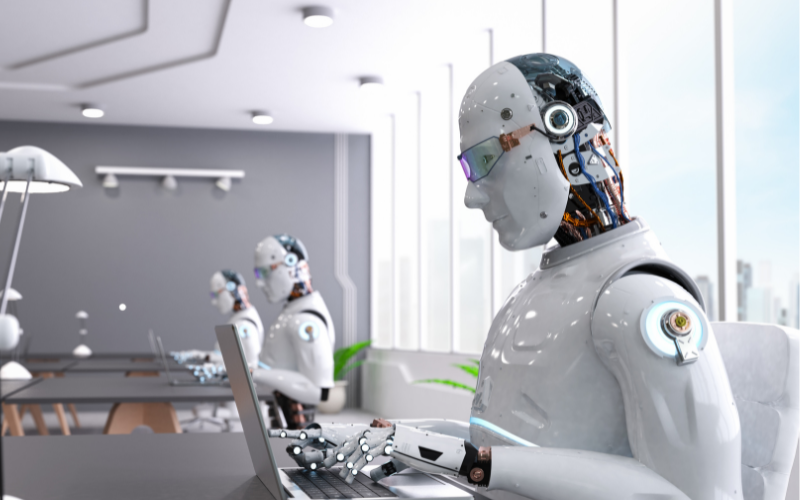As someone who has been navigating the ever-evolving landscape of technology and employment for the past decade, the impact of artificial intelligence (AI) on the job market is a topic that’s always been close to my heart. It has brought about profound changes, both positive and challenging, in the world of work. In this blog, I want to share seven crucial impacts of Artificial Intelligence on the job market that you need to be aware of.

1. Automation of Repetitive Tasks:
One of the most significant impacts of AI on the job market has been the automation of repetitive tasks. AI-powered robots and software can now perform mundane, repetitive, and often labor-intensive tasks with high efficiency. While this has increased productivity, it has also led to job displacement in industries such as manufacturing and data entry.
For example, in manufacturing, robots can assemble products, weld, and even perform quality control checks. As a result, human workers are being pushed to upskill and transition into roles that require more creativity, problem-solving, and emotional intelligence.
2. Creation of New AI Job Roles:
While AI may replace some jobs, it also creates new job roles. These emerging job roles didn’t exist a decade ago and have opened up exciting career opportunities.
Additionally, It has given rise to positions like AI trainers and explainability specialists who ensure systems operate ethically and transparently. As it continues to evolve, we can expect even more novel job roles to emerge.
3. Enhanced Decision-Making:
AI has revolutionized decision-making across various industries. Machine learning algorithms can analyze vast datasets and provide valuable insights, helping organizations make more informed decisions. This impacts job markets by increasing the demand for data analysts and data scientists who can interpret AI-generated insights.
Moreover, Artificial Intelligence-powered decision support systems assist professionals in fields like healthcare, finance, and law by providing recommendations based on data analysis. These tools enhance human decision-making rather than replacing it, thus creating opportunities for collaboration between humans and Artificial Intelligence.
4. Improved AI Customer Service:
AI-powered chatbots can handle routine customer inquiries, provide product recommendations, and even troubleshoot technical issues. This has streamlined customer support operations but also reduced the demand for entry-level customer service jobs.
However, the role of human customer service agents is still crucial for handling complex issues and providing personalized experiences. AI’s impact in this sector is more about augmentation than complete replacement.
5. Increased Cybersecurity Demand:
As AI advances, so do cyber threats. Hackers and cybercriminals are leveraging AI to launch more sophisticated attacks. This has led to a surge in demand for cybersecurity experts who can develop AI-driven security solutions and protect organizations from evolving threats.
In this context, it isn’t eliminating jobs; it’s creating a demand for a new breed of cybersecurity professionals who can stay one step ahead of cyber threats.
6. Skills Revamping and Lifelong Learning:
The integration of Artificial Intelligence into the job market has necessitated a shift in how we approach education and career development. Lifelong learning has become imperative as workers need to continually update their skills to stay relevant in a changing job landscape.
Online courses, boot camps, and micro-credentialing programs have surged in popularity, offering professionals the chance to acquire new skills quickly. The ability to adapt and learn in response to technological advancements is now a fundamental requirement for job market success.
7. Ethical and Social Implications of AI:
Artificial Intelligence’s impact on the job market isn’t just about the technical aspects; it also encompasses ethical and social implications. Artificial Intelligence bias, privacy concerns, and job displacement have brought up ethical questions that need to be addressed.
Ethicists, policy analysts, and regulatory professionals are in demand to ensure that it is developed and used responsibly. This underscores the importance of considering not only the technological but also the societal impacts.
Related

Mastering STEM Subjects with edX: Unlocking a World of Knowledge

How to Choose the Right edX Course for Your Career Goals
Conclusion
In conclusion, It’s not merely a force that eliminates jobs; it’s a transformative power that creates new opportunities, enhances decision-making, and reshapes industries. As professionals, we must adapt, upskill, and embrace the changes to thrive in this evolving job market. It’s a dynamic journey that requires us to stay informed, agile, and committed to lifelong learning.








